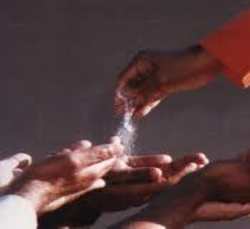In Addition
Vol 2 Issue 6
November 2011
Health Tips
GINGER CURE FOR MUSCLE PAIN
Long used in traditional Indian and Chinese medicine as a remedy for ailments such as nausea, indigestion, flatulence, ginger has now been scientifically proven to be helpful in relieving muscle pain and soreness after too much exercise. A new study shows that taking daily doses of ginger can ease the aches and pains that follow strenuous exercise.
Researchers at the University of Georgia studied whether daily doses of ginger can inhibit exercise- related muscle pain. One group of 34 participants consumed capsules filled with two grams of raw untreated ginger: this is equivalent to the 500 mg capsules of raw ginger sold in health-food stores. A second group of 40 people took two grams of heat-treated ginger as earlier studies had shown that heating ginger may increase its pain-relieving properties. A third group took a placebo. All participants consumed their capsules for 11 consecutive days -- seven days before a high-intensity weight-lifting session that was designed to induce muscle pain and inflammation and three days after.
After the 11 days of taking the capsules the participants were measured for several different variables, including: effort, pain intensity, range of motion, strength and inflammation. It was found that that the participants that had taken daily levels of raw ginger supplements had experienced 25% less exercise- induced pain than the placebo group and participants taking daily heat-treated ginger had 23% less pain than the placebo group.
Patrick O’Connor, PhD, who led the research explained that ginger works much like non-steroidal anti- inflammatory drugs (NSAIDs) such as aspirin and ibuprofen but unlike these drugs ginger also serves to desensitize a type of pain receptor found in the peripheral nerves, as well as reducing the body’s production of inflammatory chemicals. Dr. O’Connor also said the participants experienced greater pain relief than did those in similar tests of ibuprofen and naproxen, but without the non-steroid anti- inflammatory drugs’ related risks of stomach irritation and ulcers. These results were published in the September 2010 issue of The Journal of Pain.
If you would like to give this a try when you plan to go on a long hike or do an intense work-out buy ginger capsules that contain a standardised extract with a ginger content of 5% and take one two-gram daily for several days before your planned exercise. If you like the taste of ginger then take one teaspoon of powdered ginger or 1⁄2 teaspoon of ginger extract or one tablespoon of finely chopped fresh ginger.
WHY DOES HAIR TURN GREY?
Have you ever wondered why hair turns grey as you get older and whether there is something you can do to prevent greying or at least slow it down? Here's a look at what causes hair to turn grey and some of the factors that affect greying.
The age at which you'll get your first grey hair (assuming your hair doesn't simply fall out) is largely determined by genetics. You'll probably get that first strand of grey around the same age your parents and grandparents started to go grey. However, the rate at which the greying progresses is somewhat under your own control. Smoking is known to increase the rate of greying. Anaemia, generally poor nutrition, insufficient B vitamins, and untreated thyroid conditions can also speed the rate of greying. What causes your hair's colour to change? That has to do with the process controlling the production of the pigment called melanin, the same pigment that tans your skin in response to sunlight.
Every hair follicle contains pigment cells called melanocytes. The melanocytes produce eumelanin, which is black or dark brown, and pheomelanin, which is reddish-yellow, and pass the melanin to the cells which produce keratin, the chief protein in hair. When the keratin-producing cells (keratinocytes) die, they retain the colouring from the melanin. When you first start to go grey, the melanocytes are still present, but they become less active. Less pigment is deposited into the hair so it appears lighter. As greying progresses, the melanocytes die off until there aren't any cells left to produce the colour.
While this is a normal and unavoidable part of the aging process and is not of itself associated with disease, some autoimmune diseases can cause premature greying. However, some people start going grey in their 20s and are perfectly healthy. Extreme shock or stress can also cause your hair to go grey very quickly, though not overnight. ...Anne Marie Helmenstine,Ph.D. About.com
